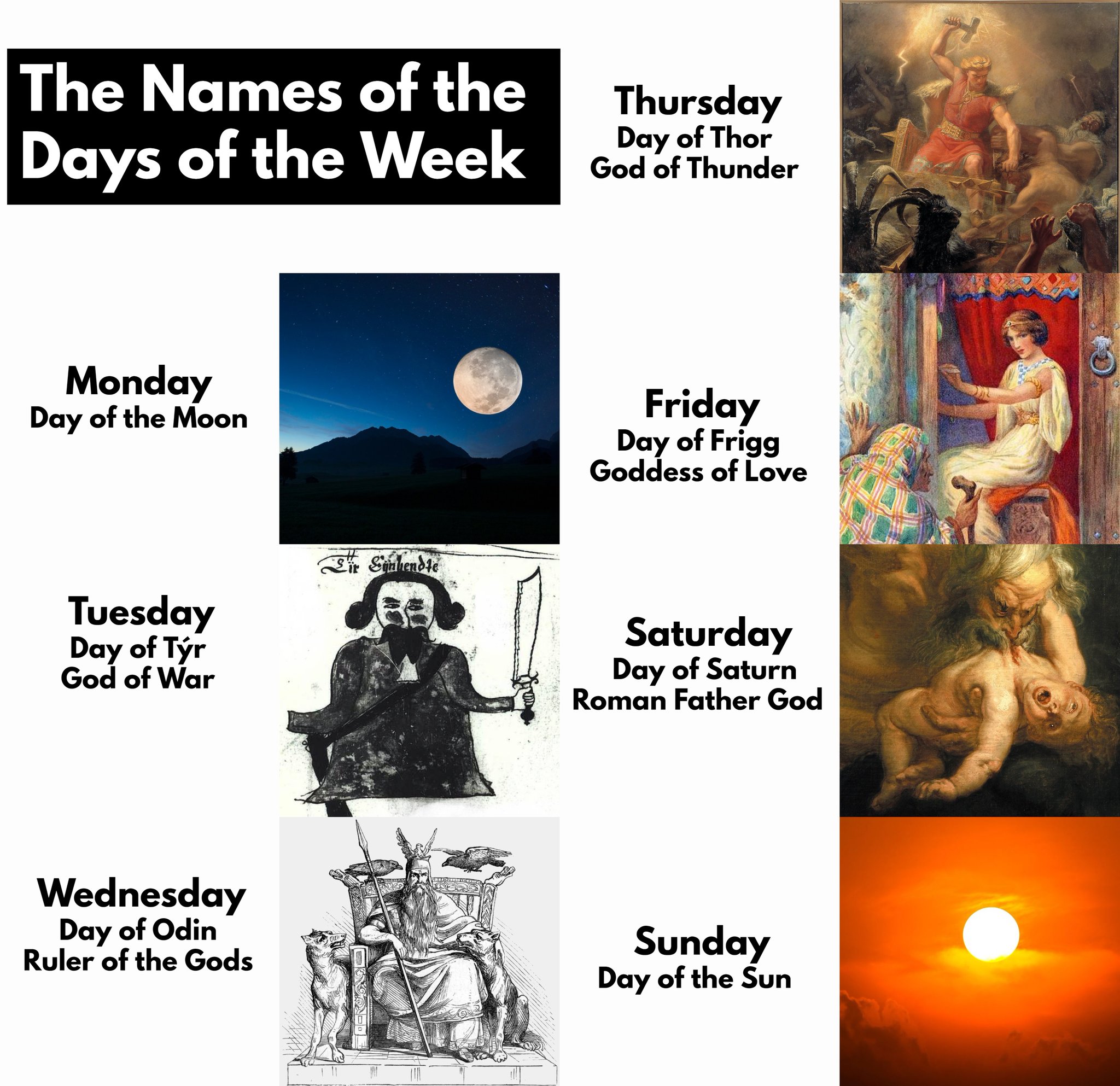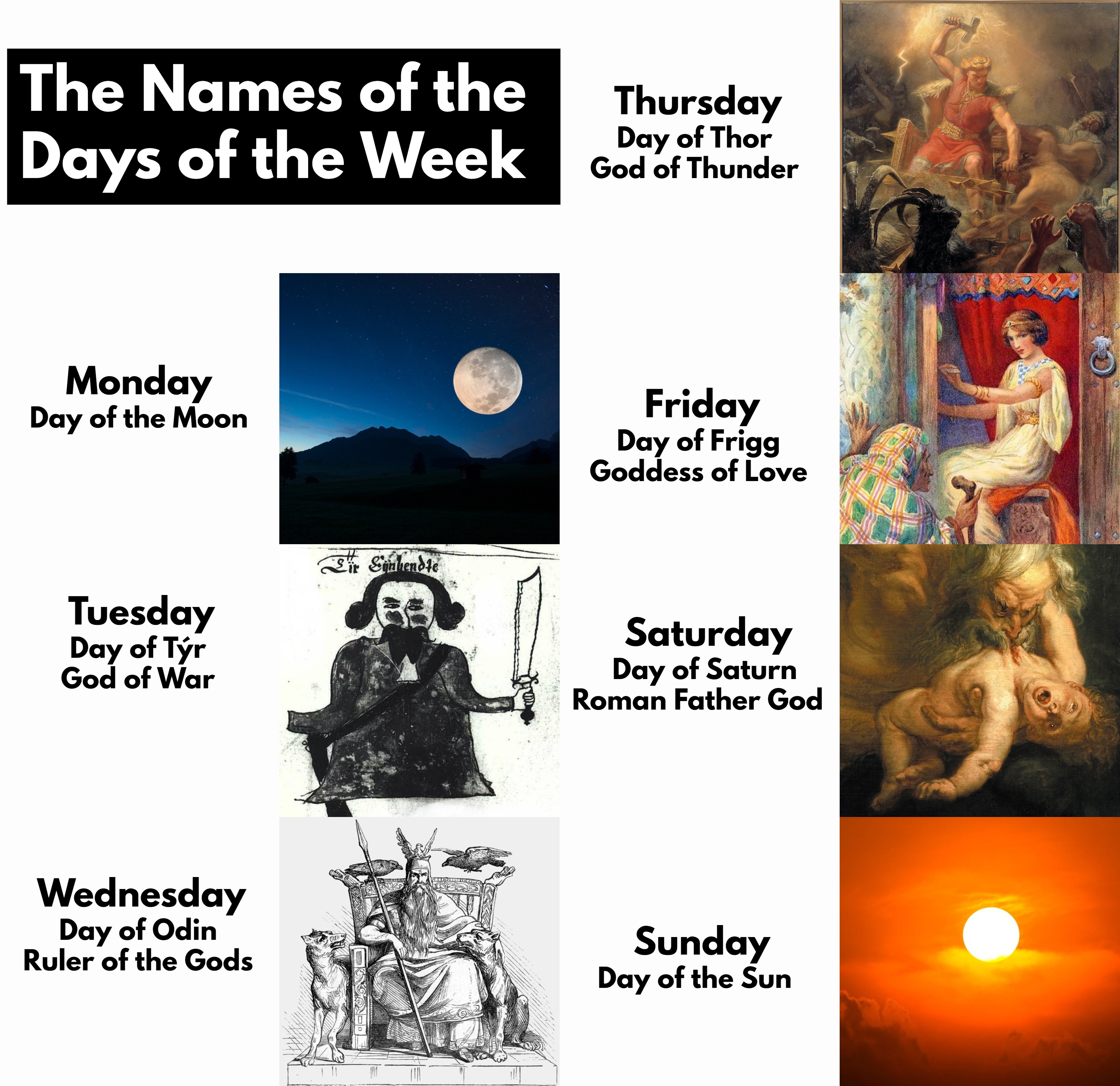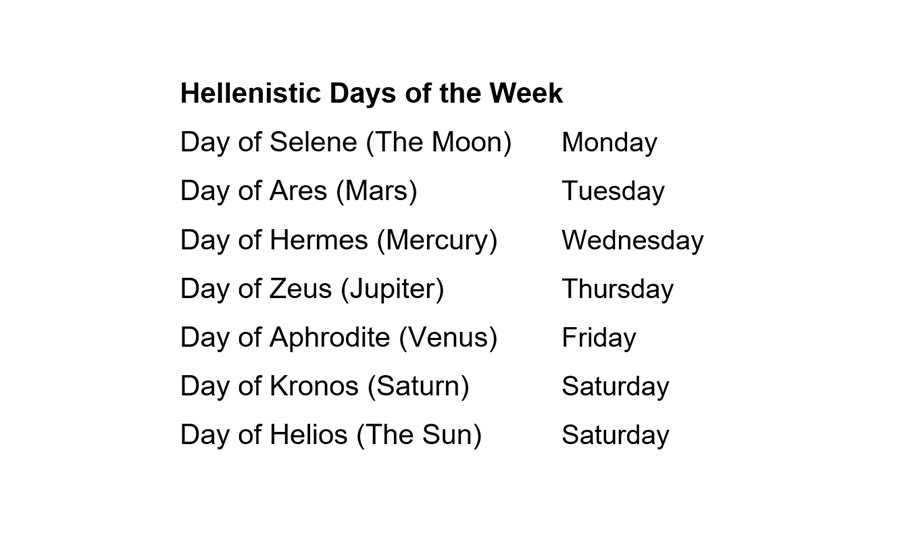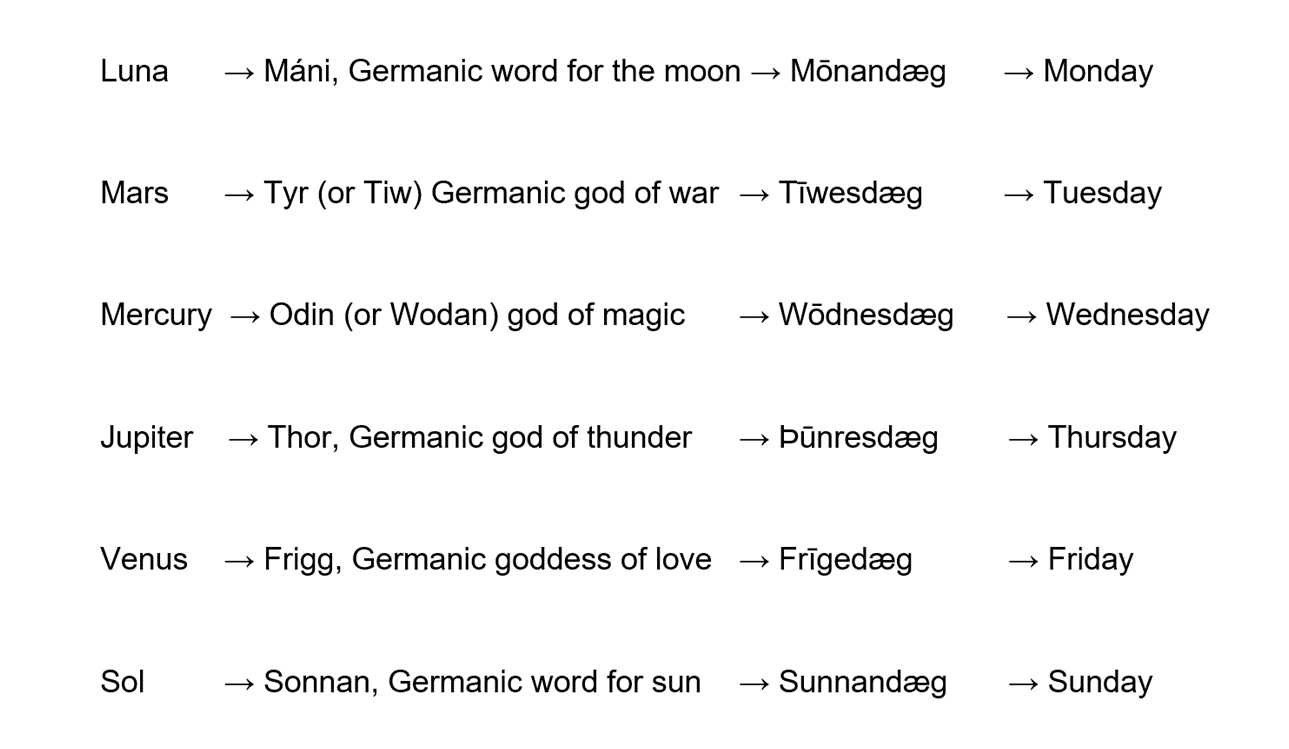Where do the names of the days of the week come from?


Where do the names of the days of the week come from?


A year is how long it takes for the earth to orbit the sun, or for the sun to return to the same position in the sky.
And a month is how long it takes for the moon to complete one phase.
But what about the week?




It has no real basis in the natural world, hence why the week has had so many different lengths.
In the Ancient Egyptian and Ancient Chinese calendars it was 10 days. The Romans originally had an 8 day week, for the Celts it was 9 days, and the Aztecs had a 5 day week.
The seven day week was invented by the ancient Mesopotamians about four thousand years ago, but we're not sure why they chose seven.
Perhaps it was a sacred number, or perhaps because seven is exactly one quarter of 28 - the length of a month - and therefore quite practical.
This seven day week spread and eventually reached the city of Alexandria, a centre of astronomical study.
There they named the days after the "Seven Celestial Bodies", the seven astronomical objects in the sky (other than stars) which can be observed by the human eye:


Alexandria was a Hellenistic city and so the days were given the Greek names for the Seven Celestial Bodies, which were based on their gods.


The Romans gradually adopted the seven day week after Julius Caesar's calendar reform in 46 BC, when he consulted astronomers from Alexandria.
But the names of the days were changed from the Greek gods to their Roman equivalents.


You can see how these original Roman names are reflected in the Romance languages - like Spanish - which are directly descended from Latin.
Apart from Sunday, which was based on the Latin for Lord's Day - Dies Dominicus - and Saturday, whose name derives from the Hebrew Sabbath.


Things were different in northern Europe, where Germanic pagans adapted the names of the Roman week days to their own equivalent gods or words.
And so Germanic languages - such as English, German, and Dutch - use modern descendants of these names instead.


Saturday, however, still harks back to the original Roman name for that day, Dies Saturni.
Nobody is quite sure why; perhaps there was no equivalent Germanic god. And, strangely, the Old Norse name for the day was Laugardagr, which means bathing day...
A lasting mystery.
And that's where the names of the days of the week come from.
A story which begins in Ancient Mesopotamia and involves Alexandrian astronomers, Roman calendar reform, various pantheons of gods, and Germanic/Norse mythology, plus several centuries of linguistic evolution.
Those societies no longer exist and their gods are no longer worshipped, yet they and their gods remain alive in the days of the week.
And that's the story of history - one long chain of influences and reactions which link us all the way back to the start of human civilisation.
If you enjoyed this then you may like my free, weekly newsletter.
Last week it included the music of Tchaikovsky, the art of Gustav Klimt, Japanese temple architecture, and the etymology of the word love.
Subscribe here to join 70k+ other readers: culturaltutor.com/areopagus